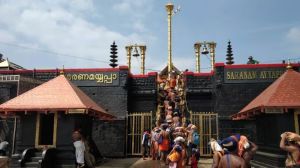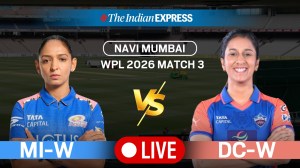Separate election fund for centre, states mooted
NEW DELHI, AUG 27: The committee on state funding of elections has suggested creation of a separate Election Fund for meeting the expenses...

NEW DELHI, AUG 27: The committee on state funding of elections has suggested creation of a separate Election Fund for meeting the expenses, with both Centre and state governments contributing Rs 600 crore each annually towards its corpus.
While the Centre may contribute Rs 600 crore annually, at the rate of Rs ten per elector for the total electorate of about 60 crore in the country towards the corpus of the fund, the state governments may also contribute proportionately a matching sum annually, the committee headed by CPI veteran Indrajit Gupta said.
Stating that state funding of elections was quot;fully justified 8211;Constitutionally, legally and also in the larger public interestquot;, the report tabled by Law Minister Arun Jaitley in Parliament on Friday recommended that state funding should be confined only to the parties recognised as national or state parties by the Election Commission and to the candidates set up by such parties.
Given the budgetary constraints and the present financial stringency, only part of the financial burden of political parties may be shifted to the state, for the time being. Gradually, more and more of the burden of their expenses could be progressively shifted to the state so that ultimately, all their legitimate expenses become a charge on the state, the committee said.
quot;Any state funding should be in kind and not in cash,8221; the panel said.
To begin with, it said, the recognised national and state parties and their candidates may be granted certain facilities at the cost of the state. They include:
Every recognised national party may be allotted rent-free accommodation in Delhi with one rent-free telephone, with similar facilities to each recognised state party in the state in which its headquarters was situated. Added to this, at the time of every general election, the recognised national and state parties may be granted sufficient free air time on Doordarshan and AIR.
Besides, each candidate of a recognised political party may be provided with a specified quantity of petrol or diesel for vehicles used for his election campaign, a specified quantity of paper for printing his election literature and the unofficial identity slips for distribution to voters, postal stamps of a specified amount and five copies of electoral rolls of his constituency.
In order to curb the ostentatious show of wealth by some parties, reasonable restrictions may be placed by law on issues like wall writings, display of cut-outs, hoardings, banners, hoisting of flags, use of more than a specified number of vehicles for election campaigns and holding of public meetings beyond the specified hours, the committee said.
The committee said it would be mandatory for political parties to submit their annual accounts regularly to the Income Tax authorities, showing all details of their receipts and expenditure.
quot;No state funding should be provided to any party or its candidates if the party has failed to submit its annual return for the previous assessment year under the Income Tax Act,8221; it said, adding that political parties should also file a complete account of their election expenditure at every general election to the Election Commission.
To bring transparency in party accounts, all donations received by political parties above Rs 10,000 should be accepted only by cheques/drafts and the names of such donors should be fully disclosed in their accounts, it said.
While the ban on donations by government companies for political parties should continue, the committee opined that the issue of whether there should be any ban on donations by other companies and corporate bodies for political purposes may be decided by government and parliament in their collective wisdom.
quot;What is needed, however, is an immediate overhauling of the electoral process whereby elections are freed from evil influence of all vitiating factors, particularly, criminalisation of politics,8221; the committee said in its concluding remarks.
- 01
- 02
- 03
- 04
- 05































